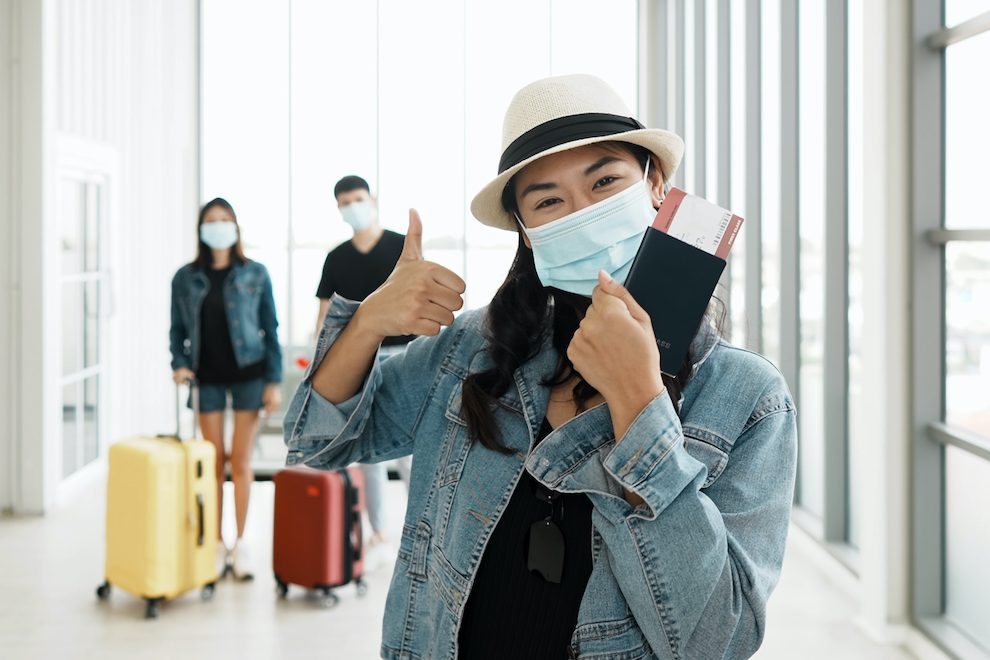A new piece of research by 2 academics from IFTM offers a series of suggestions to businesses and governments on how to boost recovery of tourism following the negative impact on the sector wrought by the COVID-19 pandemic. Facilitating travel to places with low COVID-19 infection rates, launching promotional campaigns emphasizing destination safety, and offering tailor-made tours and services focused on family vacations are among the pieces of advice.
The study was carried out by IFTM scholars Dr. Yan Io Man U and Ms. Rachel Luna Peralta. It was financially supported by Macao’s Higher Education Fund.
The research aimed to examine the relationships between emotional well-being in everyday life, motivations to travel, and intention to engage in repeated travel, all within the context of the COVID-19 pandemic. The conclusions were based on a survey of 511 Macao residents that had travelled to the Mainland for leisure.
The study indicated that where respondents reported positive emotions regarding their everyday life, they were more likely to report increased intention to engage in repeated travel. Its findings also showed that positive emotions toward routine life could enhance tourists’ need for destination safety.
The findings were featured in the academic paper “Emotional well-being impact on travel motivation and intention of outbound vacationers during the COVID-19 pandemic”, published online in late January by the scholarly journal Leisure/Loisir.
In their paper, Dr. Io and Ms. Peralta wrote that COVID-19 had “caused an unprecedented global crisis and a deep tourism recession worldwide” since the outbreak of the pandemic in 2020. That was linked not only to inbound-travel restrictions imposed by many tourist destinations, but also by would-be tourists’ perception of risk, which had “reshaped” their criteria for selecting a destination. The results from the study highlighted that the safety of an intended destination had become, during the pandemic, the “most influential factor” among all motivations linked to intention to engage in repeated travel.
Tourism turnaround
The research found that the pandemic had caused a “decline in people’s emotional well-being”, and stimulated tourists’ psychological needs for travel safety and for meeting family or relatives physically distant from them.
Based on the results from their research, Dr. Io and Ms. Peralta put forward a number of suggestions to boost recovery of tourism. They advised policy makers in would-be destinations with a low risk of infection to promote that fact to consumers. This would allow the targeted consumers an escape path from routine life, and help stimulate their appetite for repeated travel.
“Local government should work for the removal of the entry restrictions and loosen the quarantine requirement for tourists coming back from destinations with a low infection risk,” the researchers suggested.
Dr. Io and Ms. Peralta also emphasized the need to provide would-be travellers with information on destination safety regarding risk of COVID-19 infection. This could be done via promotional campaigns, as destination safety was the top factor influencing tourists’ intention to engage in repeated travel during the pandemic.
The IFTM scholars also suggested tourism businesses should launch tours and other services that tap into people’s willingness to go on family holidays. Socialisation on a family basis could have a positive impact on intention to engage in repeated travel during the pandemic, Dr. Io and Ms. Peralta said, citing the results of their research.
“Moreover, encouraging tourists to pursue a family vacation also helps ease tourists’ negative emotions towards their routine life,” the scholars stated. Their study found that tourists with more negative emotions in routine life “tended to need family socialisation more, through tourism”.
More info
IFTM Lecturer Ms. Rachel Luna Peralta has a master’s degree in English from the Abra State Institute of Sciences and Technology and a master’s degree in Management, from the Divine Word College of Bangued, Abra, Philippines. Her academic research interests include second-language writing, cognitive processes of writing, English for Academic Purposes (EAP), English for Specific Purposes (ESP), campus journalism, destination image, and intangible cultural heritage. She contributes as reviewer to a number of scholarly journals, particularly publications related to English-language studies.
https://doi.org/10.1080/14927713.2022.2032809









